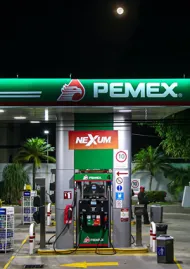PEMEX: The Ethanol Decision

Petróleos Mexicanos (Pemex), Mexico's national oil company, is exploring the use of ethanol as part of a broader initiative to integrate alternative fuels into its gasoline supply. This initiative is driven by several motivations.
- Substituting ethanol for a portion of gasoline could extend the country's diminishing crude oil supply, especially as domestic production decreases and deep-water reserves remain untapped.
- The use of ethanol aligns with Mexico's ambitious climate change objectives by reducing carbon emissions.
- Ethanol offers a new market for the agricultural sector, particularly benefiting the sugar industry which has surplus production capacity.
- Pemex faces upcoming competition due to energy reforms, and incorporating locally-produced ethanol at its retail stations could provide a competitive edge.
Despite the apparent benefits, Pemex confronts significant challenges in this venture. These include economic constraints, as the company is legally barred from subsidizing ethanol purchases and must maintain stable gasoline prices. Additionally, no bids met Pemex's cost requirements in previous tenders, reflecting the difficulty in securing economically viable ethanol supplies. The integration of ethanol, while promising, necessitates overcoming these financial and logistical hurdles to become a viable part of Mexico's energy strategy.
Developed in partnership with EGADE Business School, Tecnológico de Monterrey, Monterrey